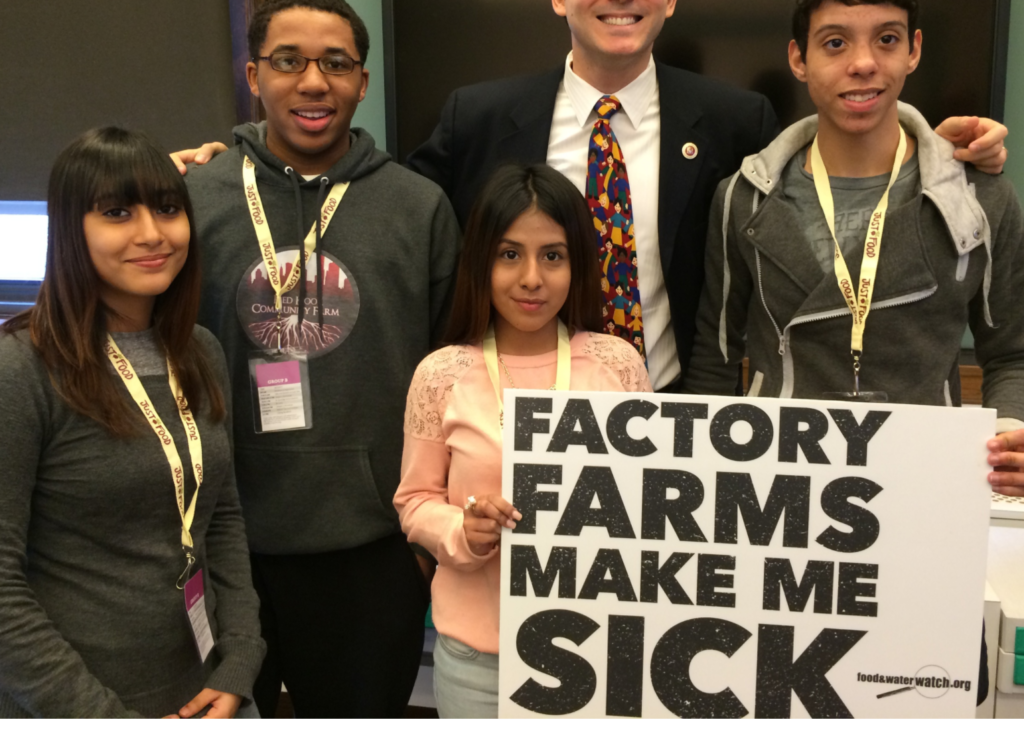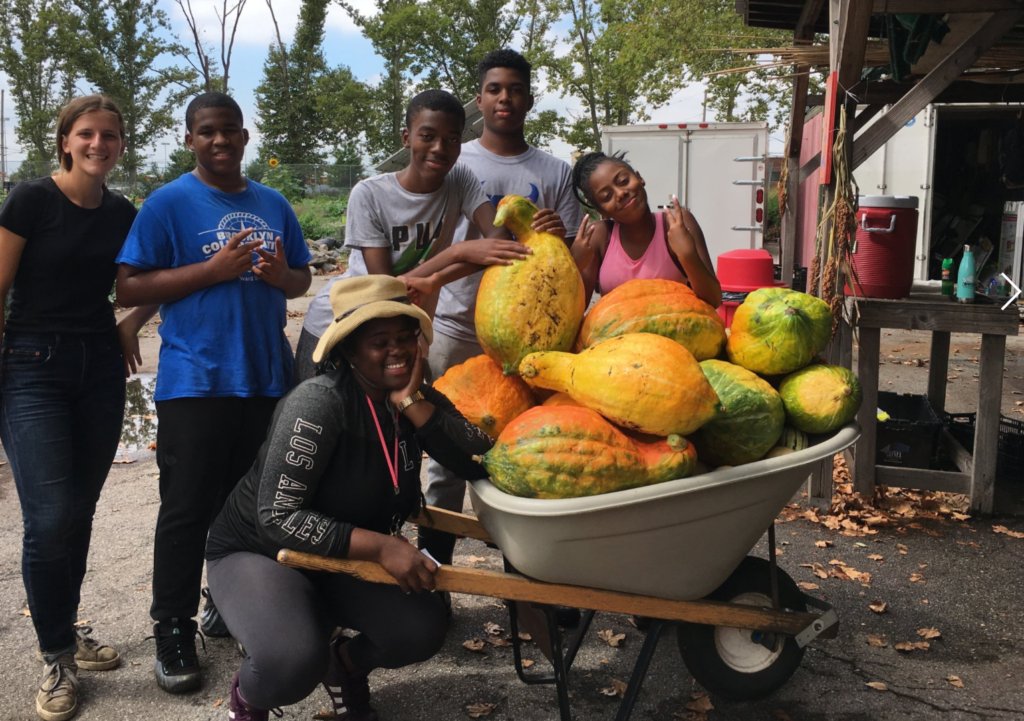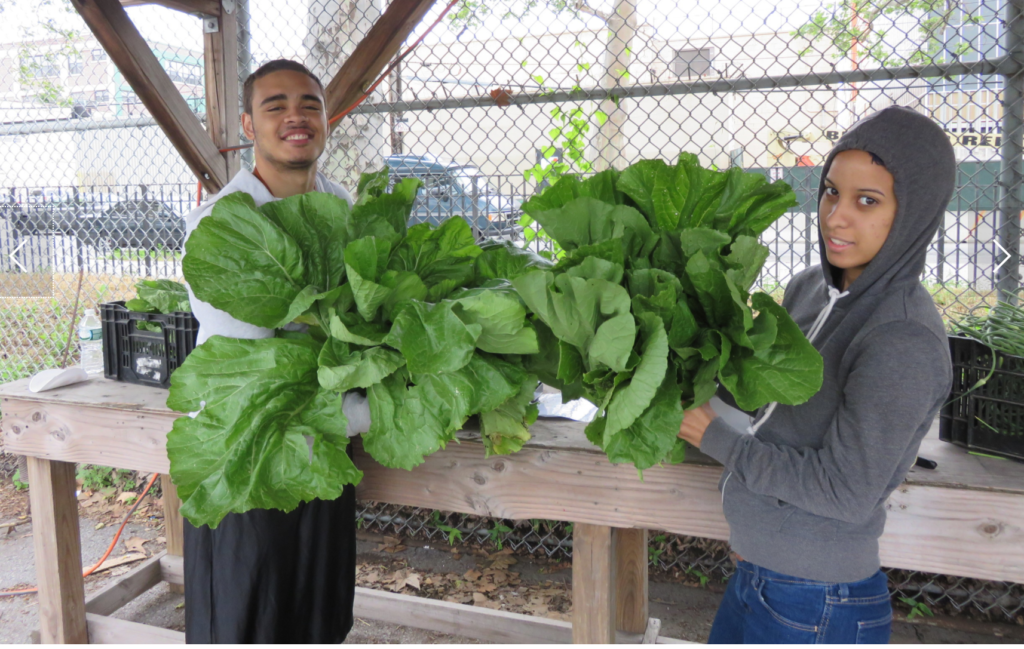
Abstract: The climate crisis must now be addressed in an urgent, radical way, before the harm we do to our environment is irreversible; in 2020 we are presented with an opportunity of unprecedented scope to reset society on multiple, interlocking levels. The pandemic and resulting societal disruption reveal in stark contrast inequities in economic opportunity, as well as access to healthcare and education, due to the continuing governmental legacy of racist policy that targets Black Americans. In the de facto segregated New York City public school system, activism that links environmental and racial justice with the climate crisis, building on the momentum of the Black Lives Matter movement, is growing. It is a necessary connection that will unify and strengthen our collective efforts–and unite Americans–to make critical progress on both critical fronts. Racial justice and environmental justice are inextricably linked with the worsening climate crisis. On the local level, in New York City, we can empower current and future generations of learners through education. the racism that produced segregated housing in toxic environments and neighborhoods, and subsequently in largely segregated school districts, cannot be perpetuated as we emerge from quarantine. As we unite to address police brutality against Black Americans, the urgent call to address underlying issues of climate justice that affect health and healthcare–and the climate crisis that enables pandemics to roar across the planet–must be the focus of our individual and governmental efforts.
Key Terms: Racism, Environmental Justice, Climate Justice, Black Lives Matter, Climate Crisis


A sampling of curriculum content, particularly in the high school curriculum, though adaptable to younger students, follows. They are envisioned to foster interdisciplinary engagement. In schools, curriculum surrounding waste generation and processing—where does our garbage go?—recycling, composting, community gardens, greenspaces, and green market economies should be studied, inspiring future engineers, scientists, writers, artists, and architects.
Civics/Government
- Discussion of the question at the heart of the civil suit Juliana vs. The United States: do the People have a constitutional right to a healthy environment? https://www.ourchildrenstrust.org/juliana-v-us
- What duty of care do we owe one another in a society—on an individual level (such as mask-wearing) and on a national/global level?
- Study of the Green New Deal as it relates to NYC realities.
https://www.congress.gov/116/bills/hres109/BILLS-116hres109ih.pdf
https://www.sunrisemovement.org/green-new-deal
- Discussion of the recently proposed companion Senate bill Environmental Justice for All Act by Senators Harris, Booker, and Duckworth:
- Carbon Nation documentary (2011) https://www.carbonnationmovie.com/about/earth-school Its tag line is “a climate change solutions movie (that doesn’t even care if you believe in climate change).”
One segment in the documentary included the slogan, “Green jobs, not jails,” a positive example of government-backed support for low-income homeowners to convert their homes to solar power, with people of color from the community participating in jobs training to install the panels. Energy savings—and clean energy—allowed POC to purchase the panels, making them part of the clean energy movement.
Environmental Science
- The Harbor School
A field trip to Governors Island to explore the oyster project at the Harbor School and is an excellent example of positive, cool environmental science. The oyster middens that used to line the Manhattan shores are testament to the once-teeming food source. Oysters filter roughly thirty-five gallons of water a day and are quietly cleaning our harbor. The shell recycling project (you can see it on Governors Island) exists because oyster larvae, called spats, need old oyster shells on which to attach to grow. It is an inspired way to teach about ecosystems and water health, and a 10-minute ferry ride is a welcome breath of fresh air—when we can emerge. https://untappedcities.com/2017/08/30/the-harbor-school-nycs-only-maritime-high-school-partners-with-billion-oyster-project-on-governors-island/

- Red Hook Farms is a truly inspiring effort surrounding farming, gardening, and education, involving public housing and NYC communities, not to be missed.
- Red Hook Farms Composting Facility is “the largest community composting program in the United States run entirely on renewable resources.”
Composting is an elemental way to empower individuals to assert control over daily consumption and waste disposal. Over 1/3 of NYC waste is compostable food waste; in landfills, it emits greenhouse gases and increases the trucking of waste. [source https://www.nytimes.com/2020/08/09/nyregion/nyc-compost-recycling.html]
- See additional information on composting activism in the face of pandemic budget cuts: https://www.nrdc.org/experts/eric-goldstein/nyc-council-must-restore-funds-community-composting
- Sunset Park Recycling Education Center Syms Municipal Recycling fieldtrip. As featured in Open House New York 2018 as one of NYC’s must-see facilities, it opened in 2013 and is an eye-opening glimpse into recycling processes.
- 0 x 30 Zero Waste to Landfills is a NYC mayoral initiative run through the Department of Sanitation, a prime example of the importance of municipal policy efforts to compost and recycle, to encourage everyone to reduce, recycle, and reuse to mitigate climate change.
History
- Innumerable examples, through Jim Crow and Civil Rights struggles, to present, beginning with this accessible and vital resource: Reconstruction: America After the Civil War, by Henry Louis Gates, Jr., a 4-part PBS Documentary. Part I is linked here: https://www.pbs.org/video/reconstruction-part-1-hour-1-n0g1em/
Environmental Justice and Community engagement
Excellent and engaging curricula can be accessed through We Act, an organization that powerfully links the issues of climate justice to education and activism and provides templates for action. We Act programming, such as Environmental Health and Justice Leadership Training (EHJLT), online learning mini-modules, and environmental and healthcare careers networking, are all part of this vibrant organization’s initiatives.
- Climate Justice Agenda 2020
The Climate Justice Agenda 2020: A Critical Decade for Climate, Equity, and Health published in April by the New York City Climate Alliance offers a fantastic roadmap for environmental issues facing NYC communities. Its overarching goals are to reduce harmful greenhouse gases and localized emissions; advance a just transition towards an inclusive, regenerative economy; and cultivate healthy & resilient communities. Educators can cull local topics most relevant to students in the neighborhoods in which their schools are housed. Issues surrounding waste transfer stations, truck traffic, pollutants, storm water treatment, coastal resilience, and the sustaining of a green jobs economy are a few of the items on this comprehensive and exciting agenda.
- Youth and Climate Change International expands the scope from the local to the global, as any discussion of climate impact must.


